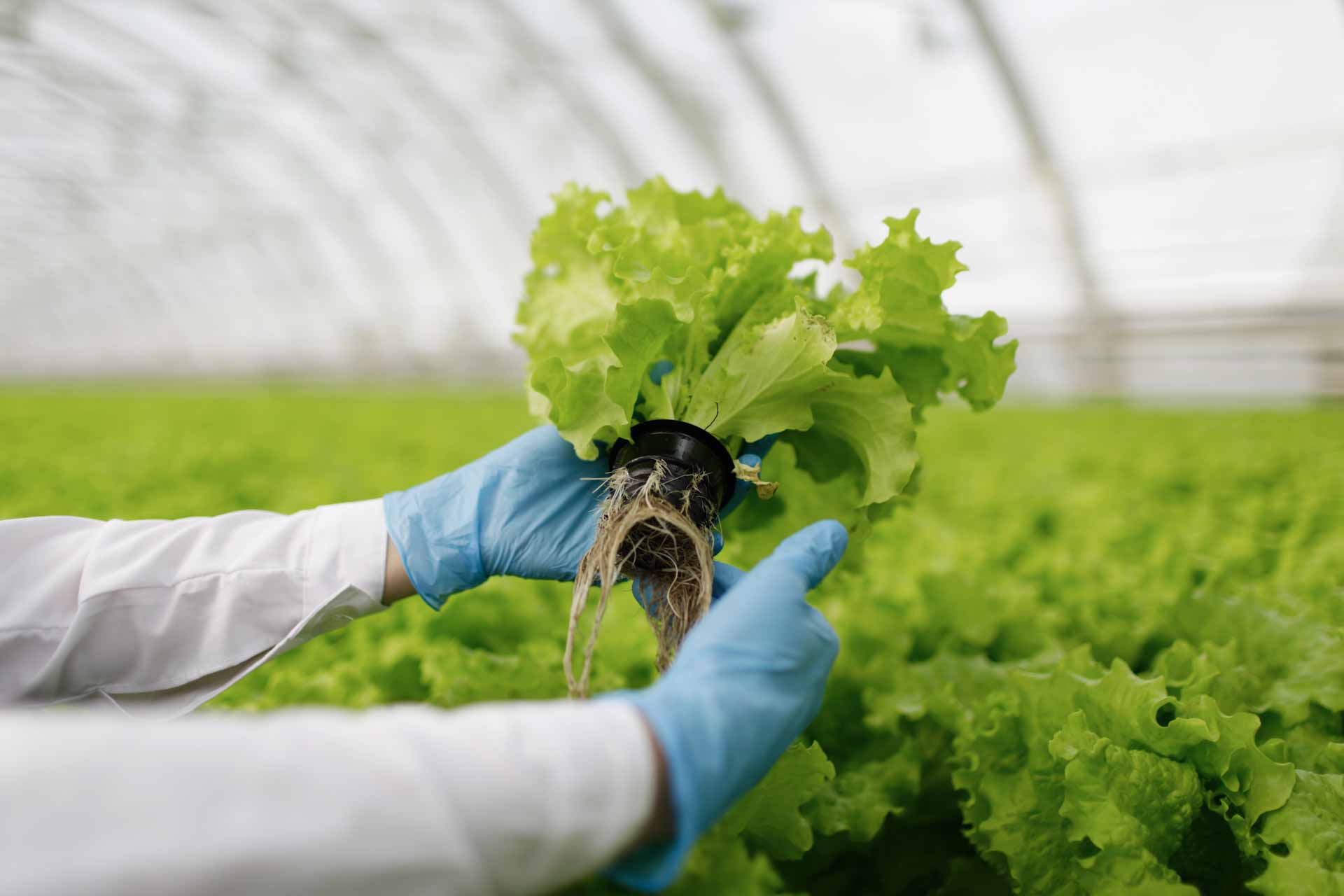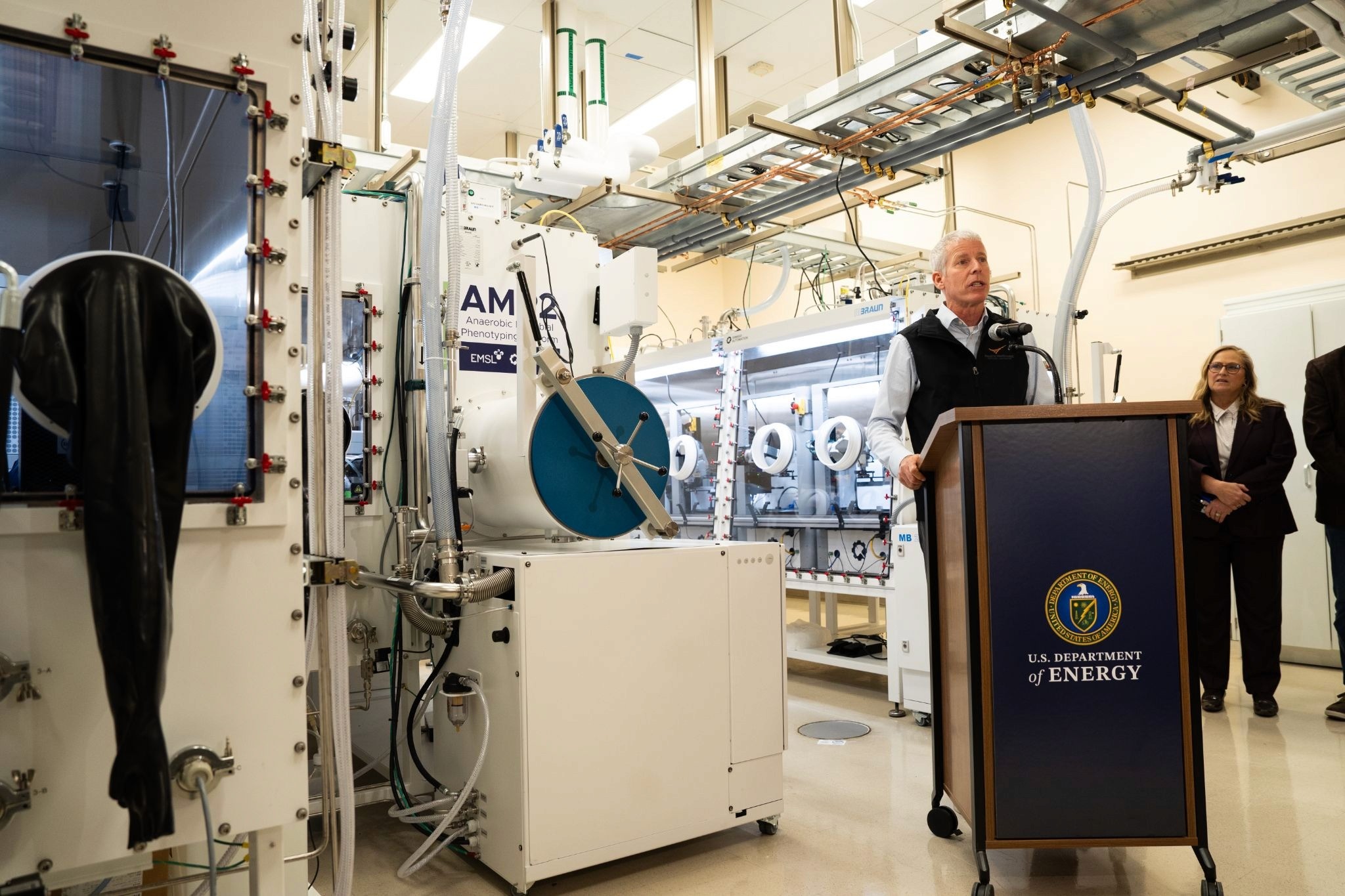Is Virus-Delivered Gene Editing the Future of Agriculture?
Researchers outline a roadmap for using attenuated viruses to improve crops, offering a sustainable and rapid approach to agricultural innovation
Sep 10, 2024
[DALL-E]
While humans, livestock, and pets have reaped the benefits of virus-based vaccines and gene therapies, crops remain left behind. This gap is highlighted in a groundbreaking study by an international research team led by the Institute of Molecular and Cellular Biology of Plants (IBMCP) under the Spanish National Research Council (CSIC). The findings, recently published in Nature Reviews Bioengineering, show a compelling vision for using attenuated viruses to bolster crop resilience against extreme climate conditions or even produce dietary supplements that enhance human nutrition. The study outlines a path for virus-based solutions to offer a faster, more sustainable alternative to agrochemicals and traditional breeding techniques.

As part of the "Future of Food" collection featured in Nature Reviews Bioengineering and Nature Food, this work emphasizes the untapped potential of viral vectors in agriculture. “Our article presents thought-provoking viewpoints and confronts readers with paradoxical situations,” explains Fabio Pasin, a CSIC researcher at IBMCP and the study's lead author. The team argues that viral vectors, which rely on harmless attenuated viruses, could introduce beneficial genes to crops, revolutionizing their agronomic traits. These innovations could prompt faster flowering and earlier harvests, develop hardier crop varieties, reshape plant structures for more efficient mechanization, enhance drought tolerance, or even produce metabolites beneficial to human health.
The concept hinges on the power of viral vectors. “Imagine using a computer that isn’t connected to the internet, and every time you need a software update, you have to buy a new computer,” Dr. Pasin explains. “Our idea is to use a virus like a USB stick: you connect it to the computer, install updates, and continue using it.” These vectors could enable precise genome editing, deploying CRISPR-Cas tools to achieve lasting improvements like increased grain length in wheat or vibrant fruit colors in tomatoes. Additionally, these viral tools could provide temporary enhancements, offering a faster, more sustainable alternative to agrochemicals for boosting agricultural production.
The Paradox of Virus-Based Solutions: Why Not Crops?
Despite the clear benefits, viral vector technology has yet to make its mark on agriculture. The study points out a major paradox: while recombinant viruses are safely used in human and veterinary vaccines—such as the COVID-19 vaccine—there are no approved applications for crops. Humans and animals can access virus-based gene therapies, but crops cannot. Even wild animals are immunized against rabies in the wild using recombinant viruses in Europe and the U.S., yet no such solutions are authorized for agriculture, even in controlled environments.
Regulatory Hurdles and the Path Forward
Given the advantages, why haven't viral vectors been adopted in agriculture? One major roadblock is regulatory approval. "It's a new type of product, similar to an agrochemical, but because it's biological, there's currently nothing equivalent on the market for agriculture," says Dr. Pasin. This lack of precedent means regulatory authorities would need to conduct thorough reviews before approving their use. However, Dr. Pasin believes the approval process could be accelerated by developing recombinant viruses with biocontainment measures and prioritizing non-food crops, such as those used for animal feed, textiles, biofuels, or ornamental purposes.
CSIC’s Role in Pioneering Plant Viral Vectors
At CSIC, viral vector technology is advancing rapidly, with experimental successes demonstrating its potential. Researchers are refining platforms to speed up the development and validation of agricultural applications, leveraging synthetic biology approaches that are scalable for future industrial production. They're also working on improving key agronomic traits in crops like tomatoes using viral vectors, unlocking possibilities for more robust, efficient, and sustainable agriculture.


















